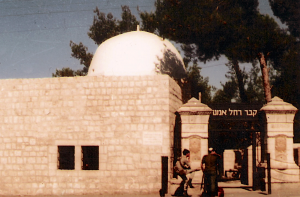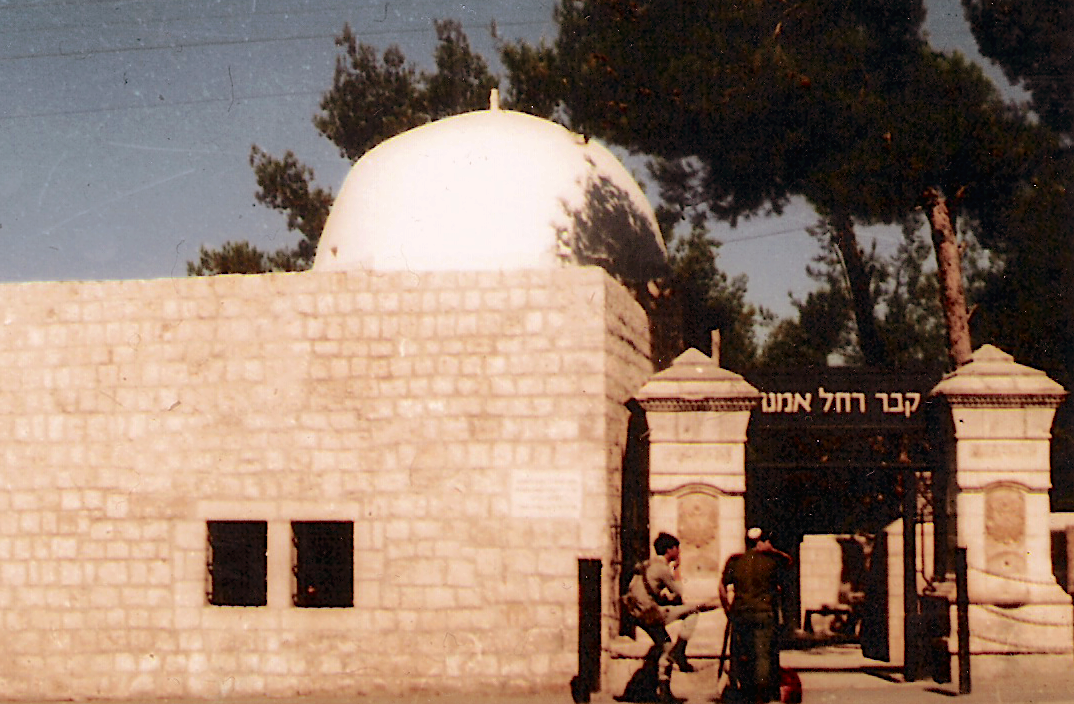
But as for me – when I came from Padan, Rochel died on me in the land of Canaan on the road.[2]
Why was it that Rochel came to be buried on the road, and did not take her place in Maaras HaMachpelah with the other avos and imahos? The explanation that immediately comes to mind is the one cited by Rashi: Her descendants would pass her burial site on the way into exile. She would take note of it, and ask Hashem to treat them mercifully.
There are some loose ends with this explanation, however. Why was it that Rochel was chosen for this role? Leah produced many more children, whose descendants also needed some powerful prayers for compassion as they trudged out of Israel into exile. Additionally, the approach seems inconsistent with a different medrash.[3]Before fleeing Lavan’s house, Yaakov asked his wives for their opinions. Rochel was the first to announce her approval, not waiting for her older sister to speak first, as propriety dictated. This was the reason, says the medrash that Rochel was not buried in the Cave of the Patriarchs alongside her husband.
The two midrashim don’t contradict each other. In fact, they share common ground. We should ask ourselves why it was that Rochel spoke out of turn? The answer might grow out of Ramban’s explanation of why Rochel died on the road. The avos, as we know, observed the Torah before it was given Why, then, did Yaakov marry two sisters, something clearly proscribed by the Torah? Ramban explains that the avos only observed the Torah while in Eretz Yisrael, but not outside of it.
This left Yaakov in a quandary when he decided to return to the land of his father. He had received a Divine directive to return, but in so doing he would be in violation of the Torah’s prohibition of marrying two sisters. He understood that one of his wives would likely die before he entered the Land, and that Rochel was the more likely candidate, since she was the last to enter into marriage with Yaakov.
Yaakov consulted his wives (even though ordinarily a wife is expected halachically to move to Israel if her husband wishes to make aliyah) because the projected move would endanger Rochel’s life, and he did not want to force the risk upon her. Leah as well did not want to express her positive opinion that might harm her sister. The righteous Rochel, however, fully understanding the risk to her life, exuberantly went along with the plan. If Hashem wanted them to move, they shouldn’t hesitate to go. Whatever would happen, would happen. She ignored her own needs in favor of pleasing Hashem.
The episode demonstrates Rochel’s mesiras nefesh for Hashem’s Will, and her great love of the Land. She ignored her own will in favor of His. This positioned her optimally for reciprocally asking Hashem to put aside His Will in favor of the needs of Rochel’s children,[4] especially in returning them to the Land!
Rochel’s speaking out, therefore, was what gave her the privilege of not being buried with her husband, but to instead advocate for the needs of her children.
- Based on Chidushei R. Yosef Nechemia (Kornitzer), 1880-1933, Rov of Krakow ↑
- Bereishis 48:7 ↑
- Cited by Toras Moshe, Bereishis 3:14 ↑
- Rav Kornitzer points to Avos 2:4 as the source for this reciprocity. ↑


